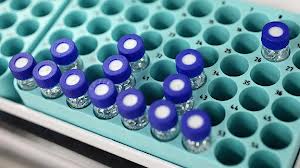By David Owen
November 13 – Blood and urine samples from players competing at next year’s FIFA World Cup are to be analysed in Switzerland, in a move likely to cause new embarrassment to Brazilian authorities.
FIFA has confirmed that it has decided to entrust the task to a laboratory in the Olympic capital of Lausanne. This, it said, was after the World Anti-Doping Agency (WADA) confirmed that the so-called Ladetec laboratory in Rio de Janeiro, which recently had its accreditation revoked, would not be able to achieve re-accreditation in time for the World Cup.
The decision will result, presumably, in a faintly ridiculous situation in which urine from some of the planet’s most revered and best-paid athletes is loaded regularly on to planes for the trip across the Atlantic.
But the debacle is no laughing matter for FIFA, which is resigned to running up unexpected extra costs because of its inability to conduct anti-doping analysis locally in Brazil, or for the Brazilian authorities, whose efforts to use the biggest global sports events to build the country’s brand image as a sophisticated modern society have already been undermined by widely-publicised street protests.
FIFA said it had “no other option” but to handle the analysis of samples abroad and was now taking “the necessary logistical steps” for overseas shipment.
It pointed out that the LAD laboratory in Lausanne was already mandated during this year’s Confederations Cup for the handling of analysis for the biological profile of athletes.
FIFA also served notice that it would use the World Cup to implement the new steroid module of the Athlete Biological Passport (ABP).
The steroid passport – a method of monitoring athletes’ biological parameters on the basis of urine samples rather than blood – was announced by WADA in September.
The ABP is used to monitor athletes’ blood profiles over a period of time in order to identify surprise changes that might be the result of doping. The ability to achieve similar ends using urine samples is regarded as a significant step forward, not least because the procedure needed to extract the samples is less invasive.
At the time of the announcement, WADA said it hoped to launch the steroid passport by the end of this year.
Contact the writer of this story at moc.l1745122877labto1745122877ofdlr1745122877owedi1745122877sni@n1745122877ewo.d1745122877ivad1745122877

